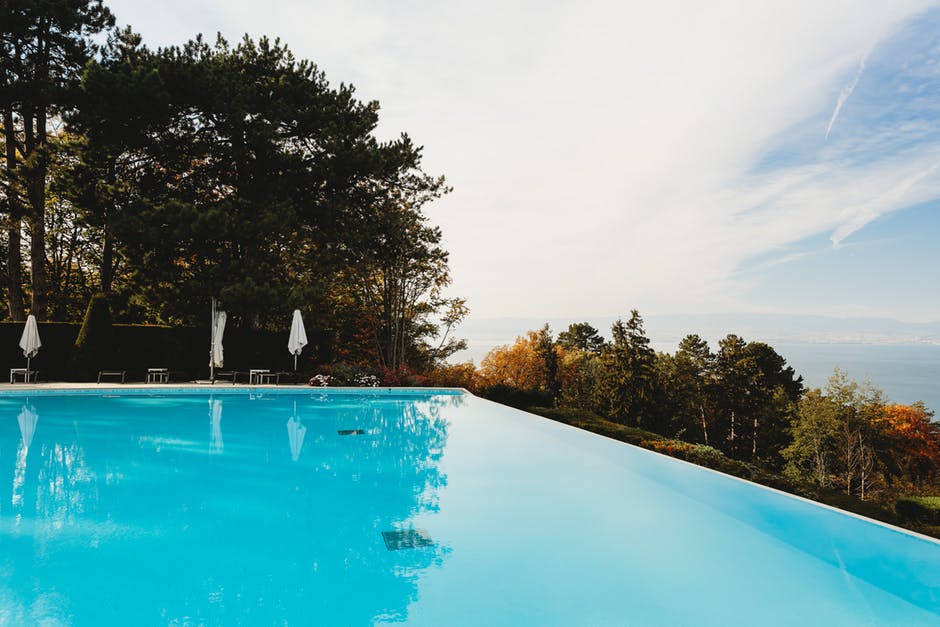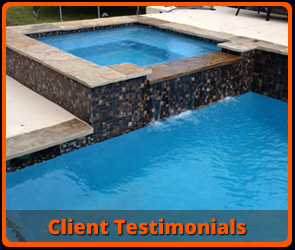Building a pool is the dream of many homeowners. It makes sense that you and others would want a pool to beat the heat each summer. Your backyard would be the ultimate lounge area with a reservoir of cool water to play in.
The goal of owning a pool sounds lovely, but how would you attain this goal? Pools aren’t exactly cheap. There is such a thing as pool financing, but what does this entail?
We’ve listed seven things below you should know about purchasing a pool. Read on if you’re curious to find out the finer points of swimming pool financing. We’ll discuss swimming pool costs and ways to finance a pool.
1. Pool Financing Gets Expensive
Building a pool is a construction project, and those are never cheap. Expensive to fluctuate depending on certain factors like location, size, and features. People may spend approximately $20 to 190 grand for their pools.
Pool installation financing also varies depending on materials. We have a few pricing estimates according to the material type listed below:
- Fiberglass: $18,000 to $65,000
- Concrete: $29,000 to $60,000
- Vinyl: $25,000 to $45,000
The listed prices are only for the pool installation. We haven’t factored in fees for different shapes or lagoon pools. Waterfalls, hot tubs, spas, slides, caves, and other features may raise prices into the hundreds of thousands.
Of course, you shouldn’t forget that pool loans require paying interest on top of the initial project price. Interest rates differ by lender but range from 5 to 36 percent APR.
APR or annual percentage rate is your yearly interest amount. You can think of APR as the literal price you pay to borrow money. APRs differ depending on the length and type of loan you receive.
2. You Have Various Financing Options
There are many ways to finance a pool. The first method we’ll discuss is funding through sellers. Simply put, some establishments that sell pools arrange financing through lenders.
Seller financing is often the most expensive option. You can pay off your swimming pool costs through unsecured personal loans. Unsecured personal loans don’t require collateral but have more interest than secured loans.
A personal loan’s duration is about 12 to 84 months. Home equity loans (HELOCs) let you borrow against your house’s equity, so they have lower interest rates.
HELOC loans can be tax-deductible. But you run the risk of foreclosure if you cannot repay the money in the allotted 10 to 15 years.
3. Pools Cost Money to Maintain
So far, we’ve only talked about pool installation financing. It takes money to maintain the pool after you have it built. It’s important to remember you still have to pay for the pool even after completing the loan.
You’ve got to have your pool serviced if you want to keep it in good condition. Here’s some of what you can expect to pay for after you’ve gotten the pool installed:
- Water testing and balancing
- Cleaning services
- Filtration testing and replacements
- Inspecting water heating equipment
Monthly maintenance fees for in-ground pools can cost $50 to $300. Smaller pools won’t have exorbitant prices, but the extra costs are still something to keep in mind.
4. Consider If Owning a Pool Is Worth It
When we say “consider if it’s worth it, ” we mean that you should carefully think about going to the effort of building a pool. Getting pool loans is often an arduous task.
Construction may become disruptive, and like we just mentioned, you have to take care of the pool to make sure it’s safe for use. Also, think about whether you’ll use the pool often and if it will enhance your quality of life.
5. Pool Financing Can Be Difficult to Attain
Just because you feel up to the task of paying high-interest rates for your swimming pool doesn’t mean you’ll receive financing. It’s not uncommon for people to get turned down by lenders for specific reasons.
A lender will consider your credit history and other factors before deciding to loan to you. A credit score of at least 670 is preferable when seeking pool financing.
Some lenders may accept scores of 669 and 550 – the latter of which is considered poor. If you’re in the middle of financial difficulties, though, you should reconsider installing a swimming pool.
6. Pools Don’t Add Much Home Value
Installing a swimming pool solely to increase your house’s value may not be the wisest move. While a pool does add value, experts can’t decide how much. The consensus is you don’t get much return on investment.
The most you can expect to see your home’s value increase is 7%. The more elaborate the pool is, the less return you’ll know if you sell your home. The best chances to maximize return on investment is:
- If you live somewhere warm year-round
- If the pool doesn’t take up most of the backyard space
- If your home is in a high-end area where pools are rare
- If it’s new and style around your neighborhood aesthetic
You also have to face the reality that many people may not want a pool. There are home buyers that would prefer gardening or outdoor living space instead.
7. Consider Paying Cash
You don’t have to take out a swimming pool loan if you’re worried about how long it takes to pay off. Cash is one of the viable ways to finance a pool. You can save up until you have enough money for your backyard retreat.
Saving enough to reduce loan costs is an option also. Let’s say you want a pool that’s $25,000, and you’ve already reserved 15 grand for the project. Your pool loan will only be about $10,000.
Want to Beat the Heat This Summer?
Pool financing isn’t as simple as asking for a loan and building it. Swimming pools aren’t cheap, with the lowest price being around $20,000.
There are multiple financing options, but it’s best to apply with a 670 credit score. However, it’s possible to receive loans with terrible scores. Cash is a good option if you’re worried about loan durations.
The Sahara Construction and Custom Pools team designs and builds pools and patios across Katy, Richmond, and Houston. If you want to cool off this summer, contact our team of professionals today!




